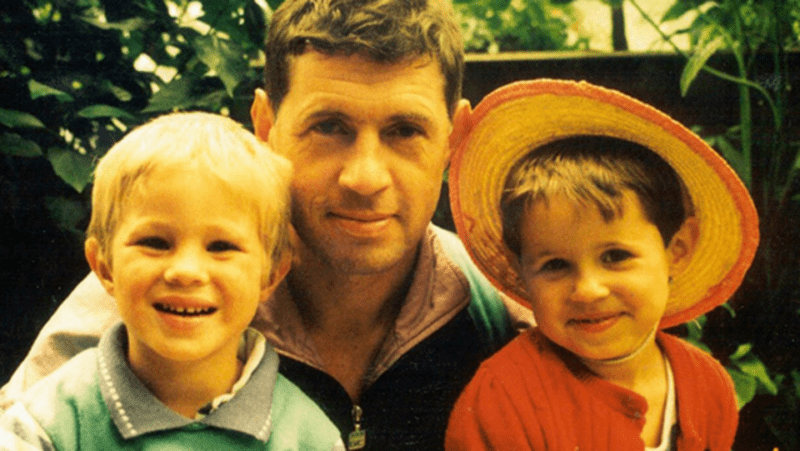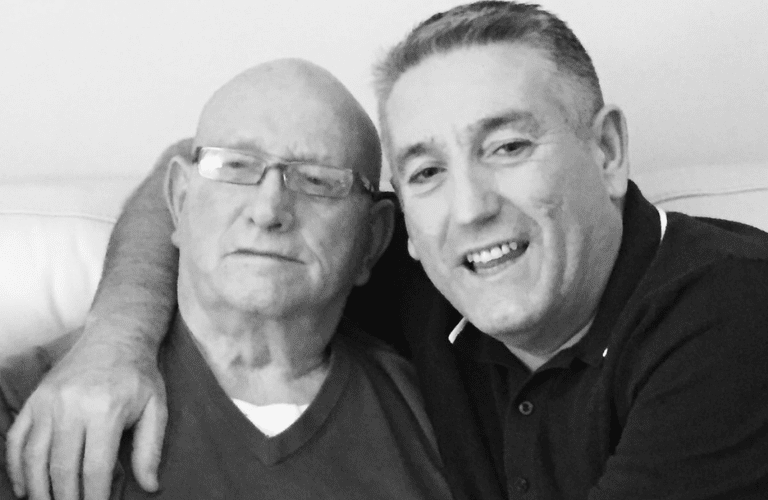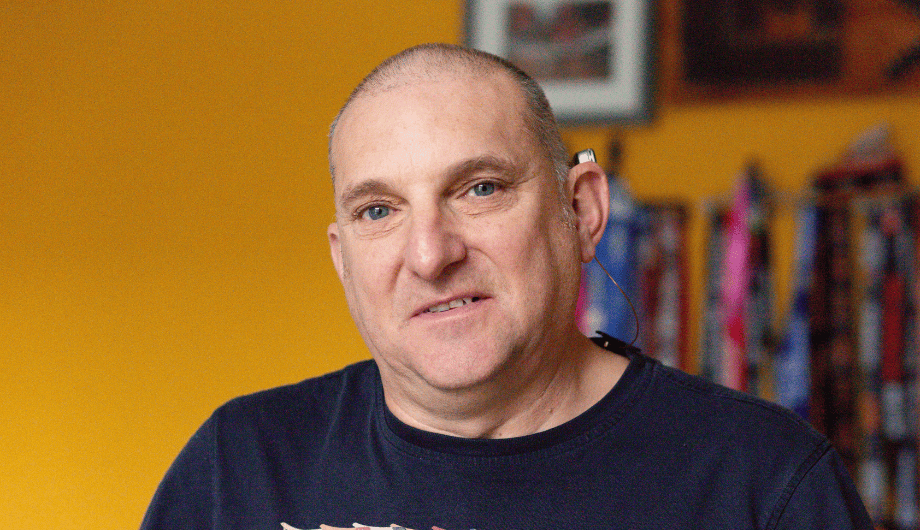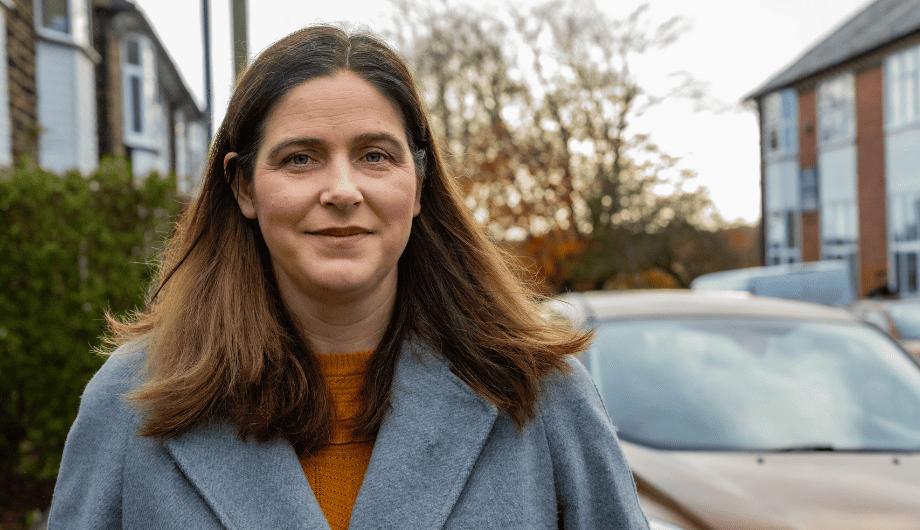
Finding purpose in grief – Helen’s story
Helen reflects on her dementia journey and grief after husband Clive died from frontotemporal dementia in 1999.
Dementia UK Trustee Steve cared for his best friend Jim for eight years after Jim was diagnosed with Alzheimer’s disease.

Steven and Jim
Jim was my best friend. We met in Blackpool in 1984 when I was working as a nurse. Jim and I both got offered jobs in London and decided to move in together.
Jim became more like a brother to me. We had the same group of friends; we went on holidays together and shared lots of good times.
Jim worked for the BBC in London for many years. He was an adrenaline junkie and raised a lot of money for charity by skydiving, abseiling and parachute jumping. He was always healthy and physically fit.
My partner Rob and I bought our own place in 2007. But later that year I noticed that Jim had started to become anxious and forgetful. He would ask the same question multiple times and I knew something wasn’t right. Jim was only 56 at this point.
I went with Jim to the GP, who performed memory tests. He scored poorly on them all.
The GP was concerned and sent Jim for an MRI scan, which confirmed that he had Alzheimer’s disease.
Jim cried his eyes out on the way home. He begged me not to put him in a care home as I had lasting power of attorney. It was an incredibly difficult time.
Jim was living on his own when he was diagnosed with dementia, and I was having sleepless nights worrying about him. Would he leave the stove on? Would he remember to lock the door?
Rob and I decided it was best that Jim lived with us so he sold his house and moved in.
We watched Jim change in front of our eyes. He became very withdrawn and anxious. He would make little notes to remember things to do.
If he passed a mirror in the hallway he would wave and have conversations with his reflection because he thought there was someone there. Things like that were hard to see.
Jim had a big group of friends, but everyone stepped away once he was diagnosed. I think they were scared and worried about what to talk to him about. But just coming to say hello and sitting with him would have made a huge difference.
As Jim started to deteriorate, we realised he needed more help, as Rob and I were working full-time. We would be up half the night with Jim and then at work early in the morning.
We really struggled to get any financial support. Even with my background as a nurse, I still couldn’t work my way around the system. Every door was closed on us.
We applied for NHS continuing healthcare (CHC) – a package of funding for adults with long-term, complex health needs – but it felt like a tick box exercise. Jim was incontinent and we had to wash and feed him, but the assessor added up all the scores and told me that Jim didn’t meet the criteria.
Thankfully, Jim had a pension, and using that, we were able to pay for a carer to come to the house. Her name was Rachel, and she had an amazing relationship with Jim. They used to laugh a lot together.
We cared for Jim for eight years, until the end of his life. The last two years were the most challenging, but I felt relieved that I was able to care for him at home and that he didn’t have to go into a care home.
At the end, the palliative care team came in and Jim died on Easter Sunday in 2017.
The day Jim died was the first time in years that we had to lock the front door – there had always been someone in the house caring for him. It took a long time to get used to having the house to ourselves.
We miss Jim so much but in many ways, we had lost him before he died. We only had little glimmers of the old Jim from time to time.
I decided to become a Trustee of Dementia UK because I don’t want anyone else to go through what we did. I want the dementia journey to be easier for people.
I’ve had first-hand experience of being a carer and the physical and psychological impact is huge. That’s why Admiral Nurses are so important to help families get the support they need.
There wasn’t an Admiral Nurse in my area when I was caring for Jim, but I wish I’d had one. And had I known more about Dementia UK, I would have called the Admiral Nurse Dementia Helpline.
It would have made a big difference to have someone who understood what we were going through, and to bounce ideas off. Someone who knew where to signpost us to for the support we needed.
As a Trustee, it’s great to see the organisation grow and more Admiral Nurses appointed. I will always do what I can to champion Dementia UK and Admiral Nurses.

Helen reflects on her dementia journey and grief after husband Clive died from frontotemporal dementia in 1999.

Andy, 52, lives with young onset dementia. As part of our ‘We live with dementia’ campaign, he shares how his diagnosis affects him and his partner Christine.

When her partner Andy was diagnosed with dementia at the age of 52, Christine struggled to know where to turn. She is supporting our ‘We live dementia’ campaign to raise awareness of how our specialist dementia nurses can help.